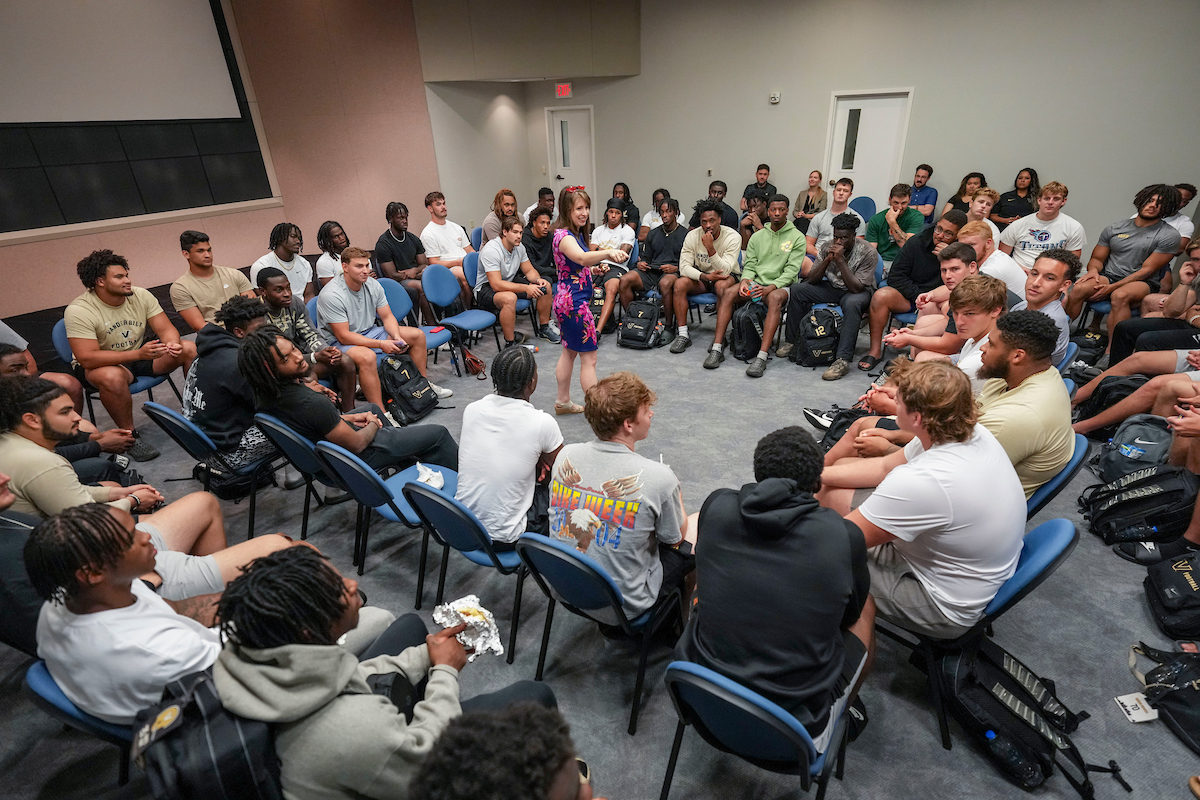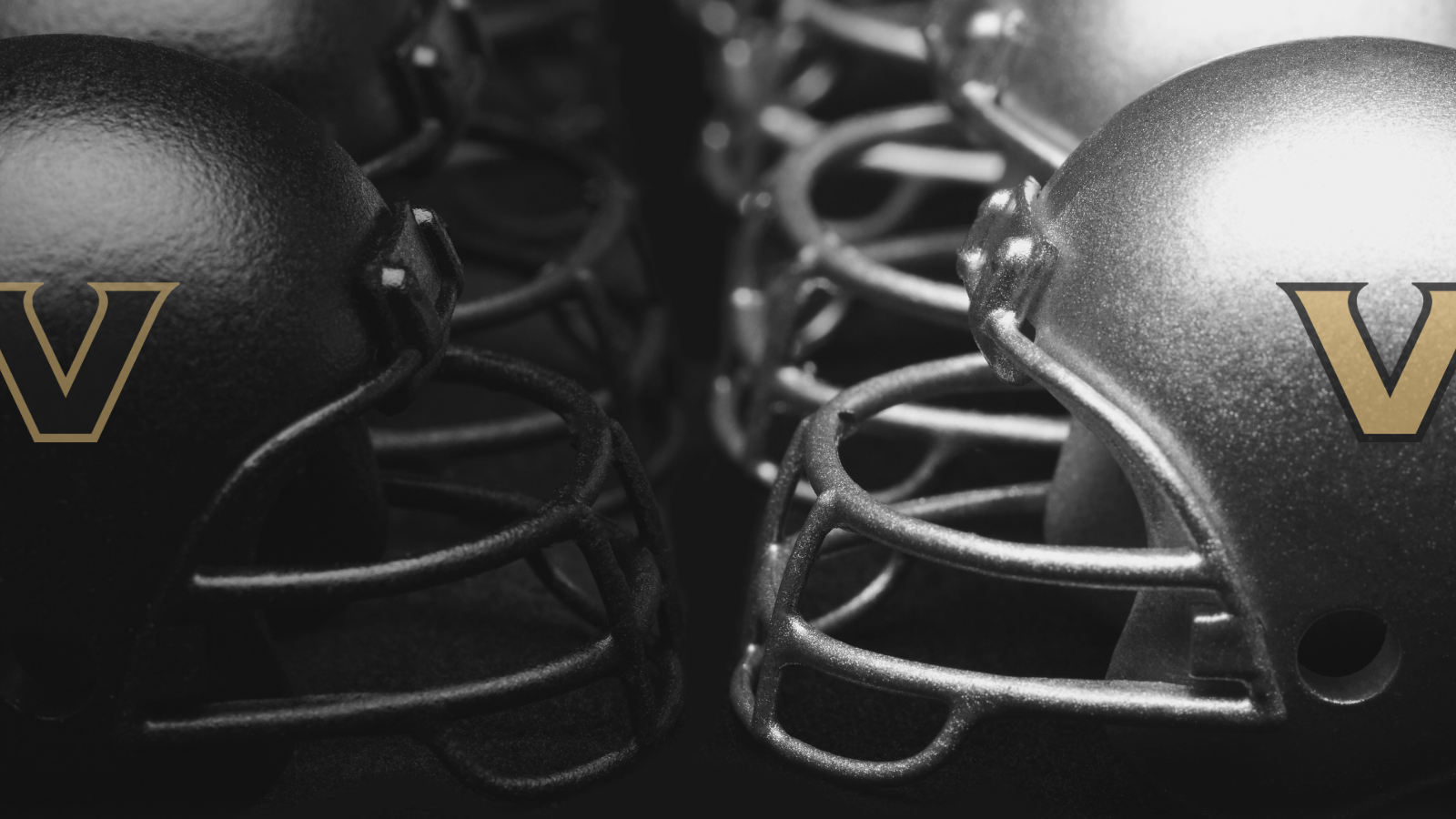
On the morning of July 22, shortly before lunch at the Seigenthaler Center, 60 student-athletes quickly filled two circles of seats. But the football players, who had just finished a weightlifting session, weren’t gathered to discuss strategy or play. They were about to engage in a debate.
Hosted by Vanderbilt Civil Discourse Lab, the event—which kicked off Dialogue Vanderbilt fall activities—was an effort to model and encourage civil discourse on campus. The university launched Dialogue Vanderbilt in August 2023 with a core mission of bridging divides, reestablishing a vibrant culture of civil discourse and free expression, and showcasing experts from campus and around the world, leading the charge to build more engaged individuals and communities.
From debate to discussion
The rules of the debate were set forth at the outset of the gathering:
- Focus on shared inquiry rather than winning
- Say what you believe
- Address remarks to the Chair, April Lawson
The topic of the Monday morning debate was “Resolved: Playing offense is harder than playing defense.”
It was a subject that cut to the core identity of many in the room.
Vanderbilt quarterback Drew Dickey walked into the middle of the circle and argued on behalf of offensive play. Then, linebacker Langston Patterson stood and gave the first speech supporting defensive play. He asked the quarterback to help him illustrate a point: “We’re going to race to that part of the carpet, and the only rule is that you can’t start until I do.” Then he dashed to the spot of carpet, easily outpacing the other player. “Playing defense is hard because you have to be responsive,” he concluded.
The conversation, initially a debate, evolved into a dynamic exchange. At the start, there was tension—student-athletes stood with arms crossed and legs tucked under chairs. But as participants stood to speak, their apprehension dissolved—muscles relaxed, smiles broke out. Humor highlighted differences and amplified logic, and laughter found its way into the conversation. Players began to lean in, respond and participate.
Occasionally, passion overran the format. Chair April Lawson kept the group focused on the point of the exercise: understanding each other’s perspectives and searching for truth. Deciding a winner was never the point. As one student observed, “There will never be a decision about this.”
After 60 minutes of debate, the conversation concluded, and players carried away some lessons from the discussion. One player said he realized that both sides have unique but very real challenges. Another noted that there was a great deal of pride on both sides—perhaps so much that it was sometimes hard to hear the other’s point of view. Several players said they had enjoyed learning how the other side thinks about the game.
“One of the great aspects of our program is being intertwined with a campus that offers such diversity of perspective and expertise. Monday’s debate at the Seigenthaler Center is an example of our team being able to engage in an exercise that broadens their learning experience,” said Vanderbilt football head coach Clark Lea.
“Not only were they able to share opinions about the sport they all love and share, they also learned important lessons about seeing an issue from both sides of an argument, engaging in respectful discourse and being able to disagree while maintaining the ability to work together,” Lea added. “In the current climate, this skill is rare and invaluable. The energy in the room was fun and exciting, and I credit the university’s Civil Discourse Lab with creating a memorable and impactful experience for our players.”
As Vanderbilt Athletics Director of Player Development Lemanski Hall put it: “It’s always about getting reps to become comfortable. That goes for football, but that also applies to difficult conversations.”
A player put it differently: “If we’re clicking on both sides of the ball like we just did [in conversation], we can go a long way.”




